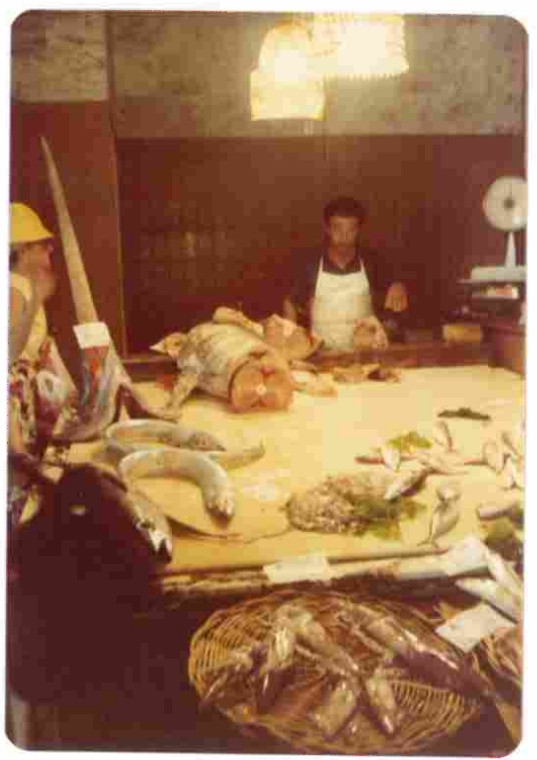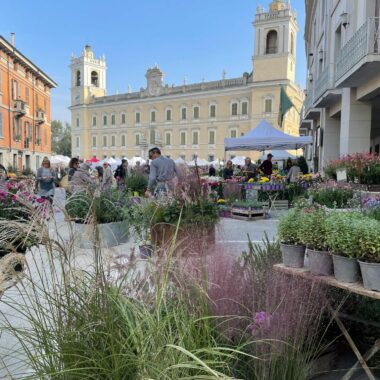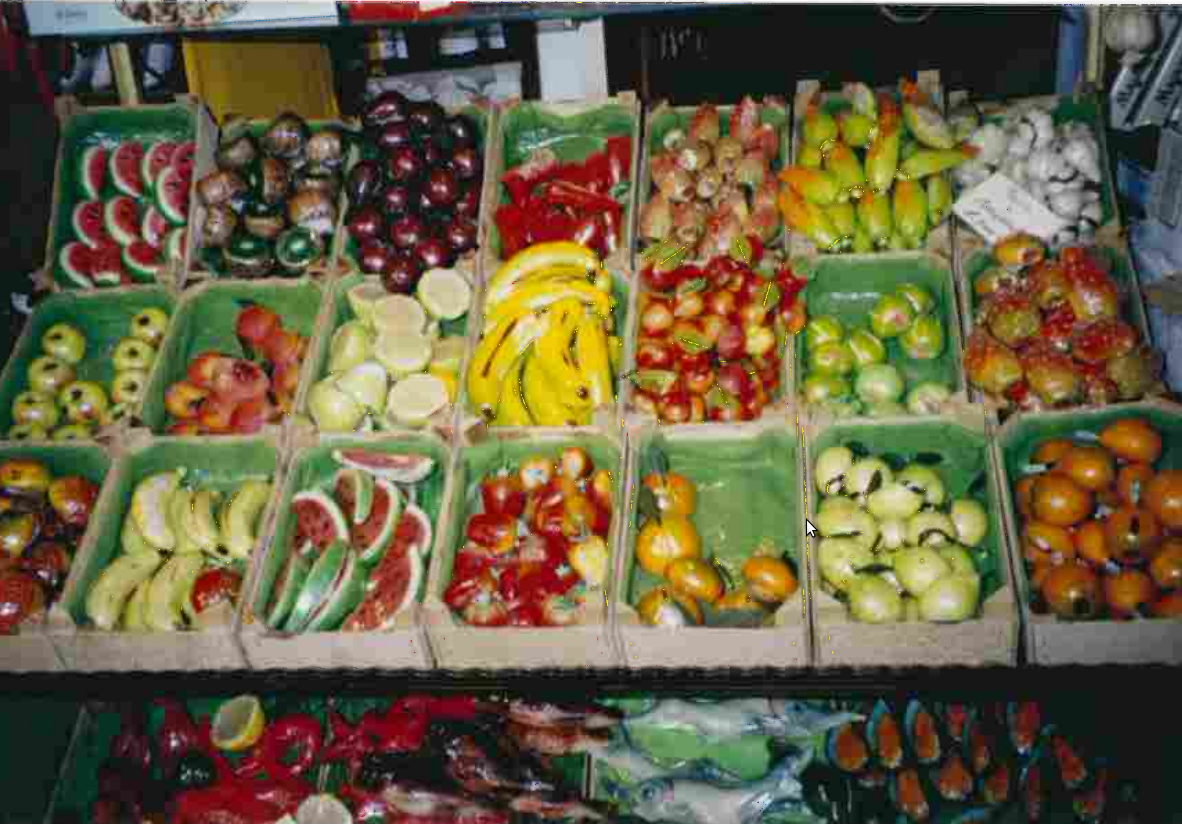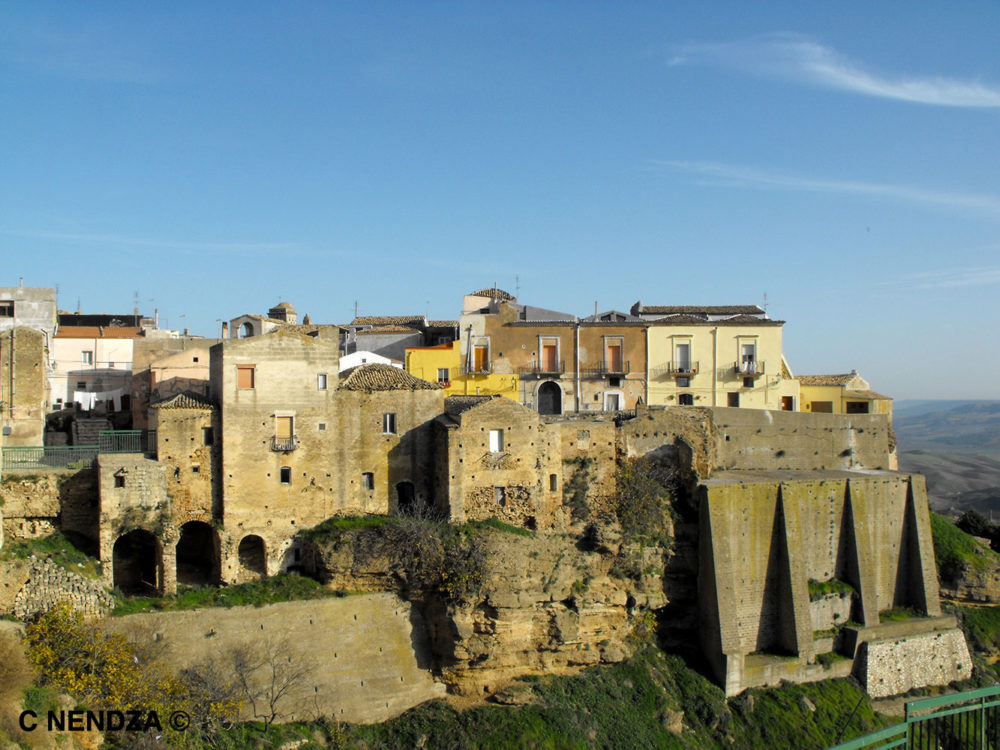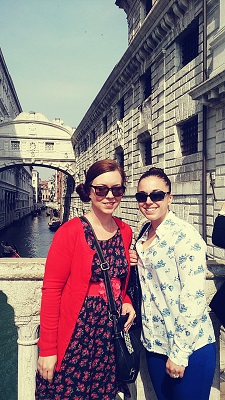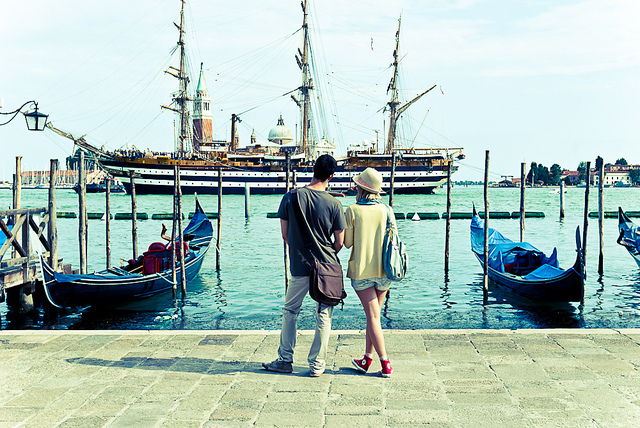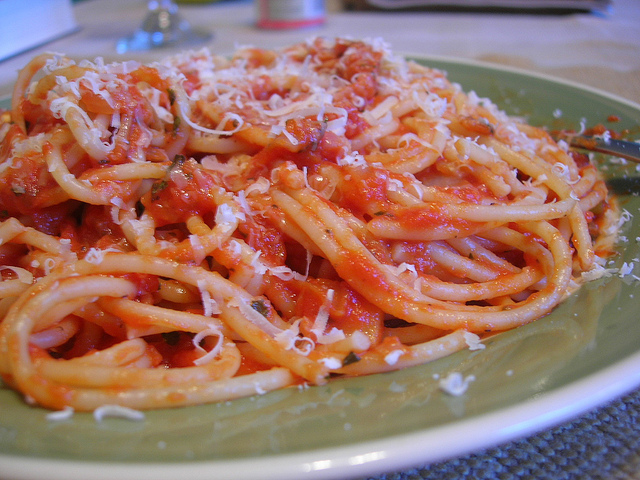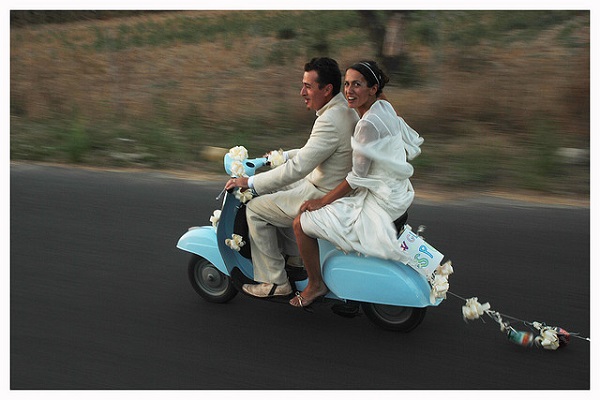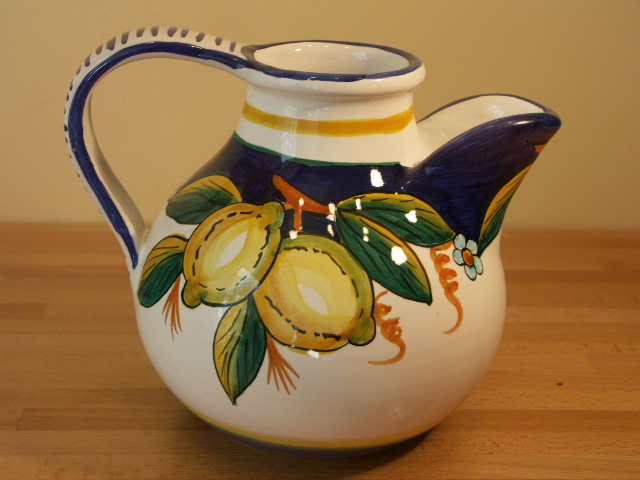A Fictional Tale Inspired by a Stay in Italy
“Do you think his whole arm bone is in there or just a piece of it?” Mom whispered to Sara, as she stared intently at the object in the glass display case.
Sara stifled a sigh.
Bones. The Medici Chapel in the Church of San Lorenzo held a treasure trove of them. A bit of this saint’s finger, a tibia from another, a piece of spine; each encased in gold, silver, and gem encrusted reliquaries. Never mind that Michelangelo designed the Sacristy and that several of his most beautiful statues resided there. Forget about the Chapel of the Princes, made up entirely of marble and precious stones. Surrounded by beauty at every turn in the magnificent city of Florence, mom’s attention focused on the bones.
It was the same in Rome, during the first week of their trip. After a three-hour guided tour of the Vatican Museums, they wandered through St. Peter’s Basilica and mom couldn’t stop staring at the glass-sided coffins containing the bodies of various Popes located along one wall of the beautiful church. The faces were discreetly covered in silver masks, but Sara could tell mom was staring attentively, looking for the telltale sign of withered skin or bones poking through.
A few days later they stopped at Santa Maria della Concezione, a church decorated with the bones and skeletons of four thousand Capuchin monks. Mom stood in front of one decoration after another studying them thoroughly. It wasn’t until Sara insisted they find a café and refuel with some killer espresso that she agreed to leave.
“I just don’t get why they did it,” mom said for the hundreth time. “Why would they chop up someone they revered and ship the body parts all over? That’s morbid don’t you think?”
“I’m not in a very good position to pass judgment on something that’s been going on for over two thousand years,” Sara replied.
“Why not?”
“We’re Lutheran and Lutherans don’t have saints. This is Catholicism in all its glory. I can’t begin to explain it.”
Sara’s husband, James, approached them, a guidebook in hand.
“I need euros,” he said, handing the book to Sara so she could pay for it.
“Mom’s obsessed with bones again,” Sara said, as she fumbled in her purse, searching for the new billfold she had purchased at the Santa Croce Leather School two days ago. The billfold was soft burgundy leather and the salesman had stamped her initials in gold leaf on the inside flap. It was quite possibly the prettiest billfold she had ever owned.
“I’m not obsessed, just curious,” mom replied while flipping through a selection of postcards. “I’m buying some of these for my scrapbook.”
Taking mom to Italy had been Sara’s idea. After her father died she wanted to do something to take away the pain that followed her mother around every minute of the day. She approached James with her idea, expecting some resistance, but he had agreed enthusiastically.
“I know we talked about doing this together, just the two of us. Are you really okay with it?”
“Well, what the heck, we’ve already been there. It’s fun to show someone else a place you love. And God knows she needs something to look forward to.”
“Not too many husbands I know would be thrilled with the idea of schlepping their mother-in-law around Italy with them,” Sara said.
“No problem. As long as the two of you realize I get everything I want.”
“Oh yeah. That’s definitely going to happen.”
Mom was skeptical.
“C’mon, James doesn’t want to be burdened with me.”
“Well, first of all, neither of us considers you a burden. Second, it’s something I know Dad wanted for you.”
“How do you know that?”
“He told me.”
“When?”
“That day you stepped out of the house for a minute to visit the neighbors.”
It was true. During the last two weeks of her dad’s life, Sara had lived at her parent’s house. He wanted to die at home, not in a hospital. A simple request and one that Sara and her mom were determined to honor, although it required both of them to take care of his needs. Too weak to walk, the stomach cancer caused him to vomit anything he ate. Pain medication doses were increased daily. The hospice nurse came every morning to assess him and as Sara walked her to the car at the end of each visit she always said the same thing.
“I’m not sure he’ll make it through the night.”
He made it through eight more nights than the nurse had counted on.
Three days before he died, Sara persuaded her mom to go next door to visit their good friends, Don and Connie.
“Get out of here for a while. He’s sleeping. Go.”
Mom left and Sara settled back on the couch, next to the blue recliner rocker where Dad slept. She picked up her book on the lives of the Roman Emperors and tried to read about Tiberius. From where she sat she could see the bird feeders on the deck that Dad faithfully filled and ruthlessly guarded against raiding squirrels. The nuthatches and chickadees were busy stocking up for the impending winter, with the occasional male cardinal swooping in and scaring the little birds until he found exactly the right sunflower seed before flying off again.
Dad’s breathing was erratic. Three or four long, deep breaths, then no breathing for fifteen seconds or more, then everything repeated. It was the silence of those apnea moments that Sara concentrated on instead of her book, counting the seconds, holding her own breath, waiting until he started breathing again.
He stirred a little, then opened his eyes and looked around until he spotted her on the couch. He squinted as if trying to bring her into focus.
“Daddy, do you want something?” Sara knelt down by his chair, taking his hand.
“Sweetheart, what are you doing here? Where’s your mom?” A soft, little voice, not the loud, raucous one she had grown up with.
“She’s next door. You want anything?”
“Why aren’t you at work? What day is it?”
“It’s Tuesday. I’m staying here now, remember? I don’t have to go to work.”
“That’s not right.”
“I’ve got vacation time, and it’s totally okay with my boss.”
He sat there for a minute, thinking.
“Not much of a vacation for you.”
“Well where did you think I’d go?” Sara asked. “Disney World?”
“Not you,” Dad said and suddenly there was a joking tone to his voice. “My daughter won’t go to Disney World. She likes Europe.”
“That’s right, I like Europe. Disney World is for other people. Give me Europe any day.”
He squeezed her hand tight and looked in her eyes as he spoke.
“Take your mother, okay? Will you? I should have done that.”
Sara nodded, stroking his hand softly until he fell asleep. He never spoke again.
They left the San Lorenzo Chapel and turned right into the outdoor market that went on for blocks around the church. The market contained mostly leather goods, but also some nice scarves, sweaters and gloves. All tourists flocked to this open-air market. Most Florentines wouldn’t be caught dead in it.
“Watch him, he’s going for a leather jacket,” Sara whispered to her mother as James wandered towards a vendor featuring every shade of leather and suede imaginable.
“He already has one doesn’t he?” Mom whispered back.
“He has two leather jackets. But none of them came from Italy. Really, deep down inside, he’s a clotheshorse. What’s going to be interesting is how he finesses this.”
James wandered into one of the stalls next to the leather jackets and began examining the scarves. They were wonderfully soft, in beautiful deep colors of brown, beige, gray, black and red. He picked up a dark brown one and draped it around his neck.
“That looks great,” Sara said. “But it’s the wrong color. Your winter coat is gray and black, remember?”
“These are only 10 euros, can you believe it? I’m getting this. I should get one in every color at that price.”
“Why don’t you get them in colors to match your winter coat?”
“I like this one.” James said as he paid the vendor for the scarf and immediately put it on. It looked good with the orange and brown sweater he was wearing.
“Very chic. I think I’ll get one, too.” Sara said.
“I’ll meet you guys back here, okay?”
And off he went, back to the stall with the leather and suede coats.
“Most people would start by buying the coat, then matching the accessories,” Sara said. “But my husband believes that if he spends 10 euros on a scarf that doesn’t match anything he owns it makes perfect sense to pick out a 300 euro coat to go with the scarf. You’ve got to admit, it’s a unique way to do things.”
“Are you going to let him get it?”
“I know it seems like an extravagance, but I can promise you this; he’ll have that coat for the rest of his life. And every time he wears it he’s going to remember this day and how wonderful it was and I don’t know if I have the heart to squash that. So yeah, I’m going to let him have the coat. What the hell.”
“You’re nicer than me,” Mom said.
“I don’t know about that. How often did you tell Dad no, you can’t have the latest fishing gismo?”
“Never. But he wouldn’t have listened to me if I had said no.”
“Aren’t you glad you didn’t?”
“Yes.”
“C’mon, let’s go see what he’s up to.”
Dinner that night was festive. Sara and her mom wore their new dress scarves draped the way the Italian women wore them. It took some fussing to make the scarf look as though it was casually thrown on at the last minute. They practiced in front of the mirror at their hotel for quite a while before achieving what they felt was the appropriate drape. James looked very Italian in his new dark brown suede jacket and matching scarf.
The restaurant was in a narrow street that ran along the side of Santa Croce Church. Sara and James had discovered Baldovino’s on their first trip to Italy two years earlier. After a full day of sightseeing, they found the restaurant by chance. Necessity, in the form of a large blister on Sara’s heel, solidified their decision to sit down. What followed was one of the best meals they had during that trip.
“What’s good here?” Mom asked while studying the menu.
“Try the risotto with pumpkin,” James said. “I had it the last time we were here and it was fantastic.”
“It’s not on the menu,” Sara said. “Now it’s risotto with asparagus. We were here in the fall last time when squash was in season. That’s what I love about this country. Everything’s fresh.”
“What are you having?” Mom asked Sara.
“I’m going to have the pasta with four cheeses. Hang the cholesterol. And let’s get ice cream cones on the way back to the hotel. God, I love Florence!”
“I’m having the bistecca alla fiorentina,” James said with great relish.
“You realize that’s a two pound steak?”
“I’ll share it with you guys.”
“Great,” Mom said. “I’m having the soup and some of James’ steak.”
“Let’s get a really good bottle of wine,” Sara said, motioning for the waiter.
“How come our scarves don’t look like that?” Mom asked, her eyes following two exquisitely dressed women as they made their way to a table.
“Are you kidding?” Sara said. “The scarves are the least of it. Look at their figures. Look at the four-inch heels they’re wearing. You and I wouldn’t make it fifty feet in shoes like that. The hair, the make-up, the bella figura. They’re gorgeous, they’re Italian, and we’re not. We’re Minnesotans by way of some Scandinavian and German ancestors. We believe in sturdy work shoes, down-filled parkas for forty below wind-chill and thick mittens. Don’t worry about the scarves, mom. Even if we could drape them that way we’d never, ever be mistaken for Italian.”
Their laughter was loud and decidedly American.
They walked slowly back to the hotel under a full moon savoring the beautiful balmy night. Mom brought up the subject again.
“Who decided where the body parts went?”
“I suppose the church authorities, I don’t really know,” Sara answered.
“The Pope?”
“Maybe.”
“I can’t imagine just hacking off a piece of the body and handing it over to someone, can you?”
“See, I don’t think it happened until later. Until the person was consecrated or whatever it’s called. I read about them opening up the tombs and finding the bodies uncorrupted in some cases, but I think it mostly happened long after they were dead. Some Pope declared them a saint and then there was a feeding frenzy for the bones.”
“That’s disgusting.”
“Nicely put, mom,” James said, draping his arm over her shoulder. “Now what should we do tomorrow?” The entrance to their hotel lay just ahead of them.
“How about going down to that bridge?” Mom said.
“Do you mean what I think you mean?” Sara asked.
“Yes. It’s time.”
“Let’s do it,” Sara said.
“Night, sweeties,” Mom said, giving first Sara, then James, a kiss.
“See you in the morning,” Sara said, following James to their room.
“I think she’s going to do it,” James said as Sara was brushing her teeth.
“Mmmm.”
“This is good. It’s what she wanted to do. This is positive,” he said, turning back the comforter on their bed and adjusting the small reading lamp on his nightstand. “How is it these people don’t go blind? Forty watts is not enough to read by.”
When Sara’s dad died he was cremated. Most of his ashes were scattered in the Mississippi River near his boyhood home of LaCrosse, Wisconsin, but there were three small film containers that Sara filled and kept in her closet. One of them she planned to take up to Grand Marais and scatter into Lake Superior in memory of the many times they had gone there as a family. One came to Italy with them at Mom’s request. The third one had no specific destination but Sara knew that it was not enough to let him go in just one place. She wanted him to be inter-continental and when the time came she would know what to do with those last few ashes.
The next morning was clear and warm. The weather had been cooperating with them during the whole trip, even though the guidebook warned that April could be a rainy month. Sara and James met her mom in the breakfast room at nine.
“Want a cappuccino?” Mom asked as they sat down.
“Heavenly,” Sara said.
“Due cappuccino,” Mom said to the waitress, who nodded and smiled. Mom looked very pleased with herself.
“Way to go with the Italian,” Sara said. “But I think its cappuccini when it’s plural.”
“Whatever,” Mom said. “I’m a beginner. She understood me.”
“Holding up two fingers and your own cappuccino cup probably helped that along,” James said, as he stood up. “I’m going to the buffet.”
“He’s such a smartass sometimes,” Mom remarked, taking a delicate sip of her coffee. “But I sure love him.”
“You still want to go to the bridge this morning?” Sara asked.
“I do.”
The Ponte Vecchio Bridge was one of Sara’s favorite places in Florence. Dating back to 1345, it was lined with shops on either side, primarily goldsmiths and jewelers. The center section of the bridge was left open, with wonderful views of the city up and down the river.
“In the Middle Ages this is where the butchers and leather workers had their shops,” Sara told her mom as they walked toward the bridge. “But Grand Duke Ferdinand had to cross the bridge each day to get to the Palazzo Pitti and he didn’t like the smell so he ordered them to go elsewhere.”
“Really?” Mom said. “How do you know all this stuff?”
“I read. This was the only bridge over the Arno River that the German didn’t destroy during World War II. Apparently Hitler gave them orders not to. But they blew up all the beautiful villas on either side of it, which were then rebuilt to look exactly like the old ones. You’re looking at villas that were built in the 1950s and 60s, but you’d never know it.”
“They look as old as the bridge.”
“The Italians have a saying: Com’era, dov’era. It means, as it was, where it was.”
“That’s pretty. Com’era, dov’era. Italian is so lyrical,” Mom said.
“Isn’t it? Things don’t change very much here, which is one of the reasons I love this country,” Sara said.
“Tell her about the flood,” James said. “Come on, you know you’re dying to.”
“In November 1966, the river rose up to the second level of these jewelry shops and it’s estimated that over a billion dollars worth of gold and jewels went into the Arno.”
“Good Lord,” Mom said. “All these lovely shops were flooded?”
“Yes. But the real loss took place in Santa Croce Church, down there,” Sara said, pointing in the direction of the church. “A priceless Cimabue crucifix was damaged beyond repair. In fact, fifteen feet of water flooded the interior of the church.”
“How on earth do you remember all this?”
“She’s a geek,” James said as they climbed the low stairs up to the center of the bridge.
They stood side-by-side, gazing down into the river. The water was clear, calm.
“Look,” James said, pointing. “What is that?”
A brown animal, somewhere between the size of a beaver and an otter, was swimming gracefully out from the bank. It was joined by another, then another. They swam in circles around each other like they were playing a game of tag in the greenish-brown water.
“Too big for a muskrat,” Mom said, squinting into the sunshine. “They look like they’re having fun out there, don’t they?”
“They do,” James said. “And look down there.”
A school of large fish swam directly below them.
“Carp, probably,” Sara said.
A flock of ducks flew low, settling on the water between the fish and swimming mystery animals.
“It’s a sign,” Mom said. “He’d love it here.”
“Are you sure?” Sara asked.
“She’s right, it’s perfect. I mean, as perfect as it can be, considering he never wanted to go to Italy.” James said.
“Do you have the container?” Mom asked.
Sara reached into her purse and pulled out the small plastic film container, showing it to Mom and James.
Mom nodded and they all moved closer together as she uncapped it.
“Do you want to say something?”
Mom thought for a moment, before speaking.
“Well, Bill, I still miss you, but I just want you to know I’m doing better now. I can’t believe it’s been a year without you. I’ll bet you’re fishing everyday up there, huh? Be at peace, sweetheart. I love you.”
She nodded and Sara released the ashes from the container. They all watched as the small cloud went down, down, down to the waters of the Arno.
I miss you, too, Sara thought. You have no idea how much.
All three of them were leaning over the stone ledge, watching the ashes settle when someone behind them spoke in Italian.
Sara turned around first and the uniformed man repeated his question.
“Sorry,” Sara said, “Parla inglese?”
“What are you doing?” he asked in lightly accented English.
“Nothing, I mean, we were just…” Sara looked to James and Mom, who were standing behind her with guilty expressions on their faces.
“What was that?” the man asked, pointing to the container in Sara’s hand.
“Ashes. Cenere, I think.”
James was paging through the phrase book frantically, trying to be helpful. Mom stood still. Watching.
“Ashes,” the man said, slowly. “Why do you throw ashes in the river?”
“Well…” Sara said, hesitating. The man looked at her, waiting for an answer.
“Mi esposo,” Mom said loudly.
“That’s Spanish,” James said softly.
“He knows what I mean,” Mom shot back, staring directly at the man in uniform. She pressed her hand to her heart. “My husband.”
“Husband?” He looked confused.
“Yes, my husband. His ashes.”
“You put your husband’s ashes in the river? Why? Why would you do that?”
“Because he loved water, fishing and, and, those animals over there. He’d like it here.” She was getting teary-eyed, so Sara stepped in as James put his arm around Mom.
“My father died a year ago. We came to Italy so that we could be, I don’t know how to say it – so we could be happy again. Do something happy. But my mother didn’t want to go without some of Dad’s ashes. Are we breaking a law?”
The man eyed the three of them silently. Sara held tight to the film container, as James put his other arm around her shoulders.
“American, right?” the man said finally.
They nodded.
“Catholic?”
“No,” James said.
“Allora,” the man said. He brought his hand to his cap and touched the brim as he looked at Mom, “Condoglianze, signora.” He turned and walked away, shaking his head.
“Did he just say he was sorry?” Mom asked after he was out of earshot.
“Condolences,” Sara said. “He gave you his condolences.”
“At least we’re not under arrest,” James said, breathing a sigh of relief. “Although, I noticed there was a whole section in our phrase book about legal problems. I was all prepared to yell, ‘Sono innocente,’ as they were dragging us away.”
“That was a little intense,” Sara said, leading them away from the bridge, which was becoming more crowded with tourists.
“The man acted like he’d never seen anyone scattering ashes. You can’t tell me we’re the first people to do it on that bridge,” Mom said.
“Maybe we’re just the first people to get caught,” James replied.
“Nonsense.”
“Mom, I don’t think the Italians are big on cremation.”
“It’s what your father wanted.”
“I know, but remember we’re in their country. Maybe he just wanted to make sure we weren’t dumping drugs or something into the river.”
“Is it too early for ice cream?” James asked as they made their way toward one of the best gelaterias in Florence.
“It’s never too early for ice cream,” Sara replied. The three of them walked inside the welcoming doors. Although only mid-morning there was a line of people waiting for cones.
“You’re awfully quiet,” Sara said to her mom. “Are you okay?”
“I am. I like what you told him on the bridge. We came to be happy again. This place makes me happy. I miss your father so much, but for the first time in a long time, I feel happy.”
“He wouldn’t want you to be sad forever.”
“I know.”
“What should we do after we get our cones?” Sara asked.
“You decide.”
“How about going to San Marco? It’s a monastery filled with frescoes by Fra Angelico. It’s really beautiful.”
“That sounds nice. I think I’ve had all the bones and ashes I need for now,” Mom said.
“Did you hear that?” James said. “She’s done with the bones!”
“Good,” Sara said, slipping her arm around her mom’s shoulders. “There’s so much more to see.”
Mom turned to the counter to order her ice cream and Sara turned to look at the bridge one last time. It would always hurt, she thought. Like those missing villas on either side of the Ponte Vecchio, there would always be an empty space that could be filled up by something else; but could never be the same. The three of them would have to work hard to rebuild their happiness, com’era, dov’era.



